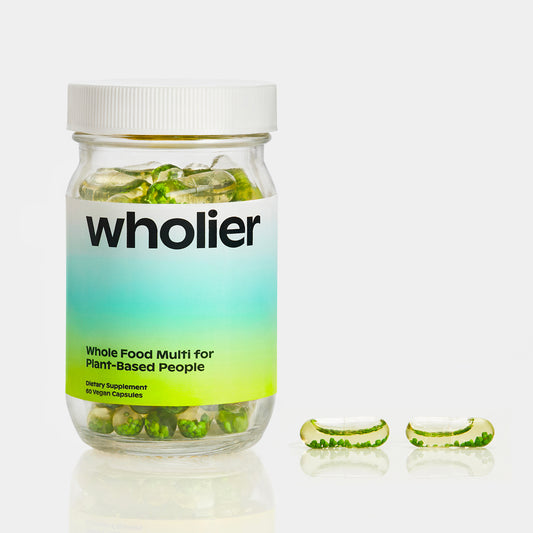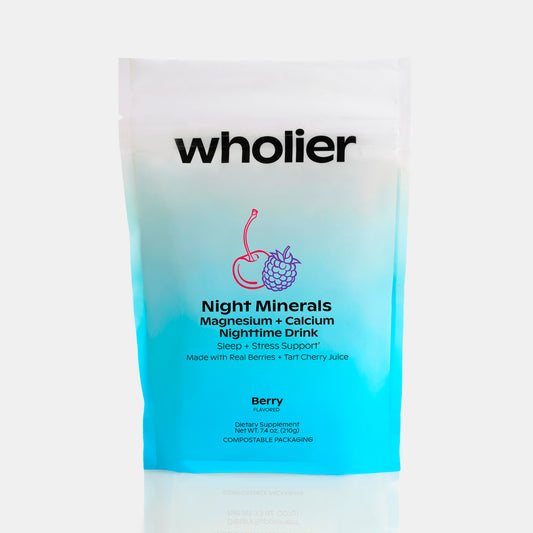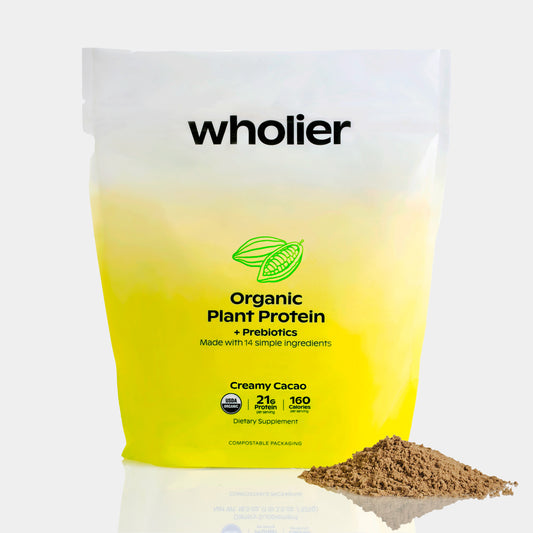
The 10 Most Nutrient Dense Fruits and Vegetables
Supercharge the nutritional value of your meals with the most nutrient-dense fruits and vegetables.
Doesn’t it feel like every day you get bombarded with info about “the healthiest” things to eat? Whether you’re scrolling your social feeds, scanning the day's headlines, or searching for a yummy plant-based recipe, there’s an endless, steady stream of news, claims, tips, and studies about healthy eating at your fingertips. It can be inspiring, but also overwhelming.
If you’re on the hunt for the healthiest fruits and vegetables, there’s a clear, science-backed list of them. A peer-reviewed study conducted by researchers at William Paterson University and published in the Center for Disease Control's journal, Preventing Chronic Disease, established standards for defining the most nutrient-dense plants, and officially categorized them as a “powerhouse” vegetable or fruit.
Understanding the nutrient density of fruits and vegetables
Nutrient density is always a great way to size up the nutritional value of any food or recipe. It refers to the ratio of beneficial ingredients to the energy of the food. In the powerhouse plant study, the nutrient density score was calculated on the bioavailability of 17 critical nutrients (potassium, fiber, protein, calcium, iron, thiamin, riboflavin, niacin, folate, zinc, and vitamins A, B6, B12, C, D, E, and K ) per 100 kcal of the plant in its raw state. The plants that provide on average, 10% or more daily value per 100 kcal, made the powerhouse list. Over 40 powerhouse fruits and vegetables were analyzed, but here’s a look at the top five fruits and vegetables that made it into the nutritional hall of fame.
"Nutrient density is always a great way to size up the nutritional value of any food or recipe."
A word of discerning caution before digging into the data: serving size matters. A nutrient density score of 100 means that powerhouse plant, on average, delivers 100% DV of the qualifying nutrients per 100 calories. But, one cup of any of these fruits and veggies is far less than 100 calories—some have only 4 calories per cup! Serving sizes are per USDA FoodData Central.
Bottom line: Make every plant-based bite a powerful one with these powerhouse fruits and vegetables…and eat them a lot. How much? Five is the magic number: A recent study published in the American Heart Association’s journal Circulation found that consuming five servings of fruits or vegetables per day can lower your skin of heart disease, stroke, cancer, and respiratory disease.
Here are the top 5 powerhouse vegetables:
1. Watercress
Nutrient density score: 100
Serving size: 1 cup chopped, 4 calories
High in vitamins K, A and C
2. Chinese Cabbage
Nutrient density score: 92
Serving size: 1 cup shredded, 9 calories
High in calcium and vitamins A and C
3. Chard
Nutrient density score: 89
Serving size: 1 cup, 7 calories
High in magnesium, potassium and iron
4. Beet Greens
Nutrient density score: 87
Serving size: 1 cup, 8 calories
High vitamins A, C, and K, and fiber
5. Spinach
Nutrient density score: 86
Serving size: 1 cup, 6 calories
High in folate, iron, and vitamins A and K
And the top 5 powerhouse fruits:
1. Red Pepper
Nutrient density score: 41
Serving size: 1 cup (chopped), 39 calories
High in vitamin A, B6, C and E, folate and potassium
2. Pumpkin
Nutrient density score: 34
Serving size: 1 cup (cubed), 30 calories
High in vitamins A, B6, C and E, folate and copper
3. Tomato
Nutrient density score: 20
Serving size: 1 cup (chopped), 32 calories
High in vitamin C and K, copper, potassium and fiber
4. Lemon
Nutrient density score: 19
Serving size: 1 cup (sections), 61 calories
High in vitamins B6 and C, copper and potassium
5. Strawberry
Nutrient density score: 17
Serving size: 1 cup (halves), 49 calories
High in vitamins C and A, potassium and man






